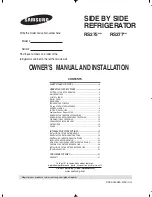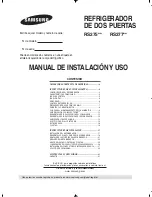
Part number 20068, Rev 0
13
Keep your equipment clean-
Use proper cleaners at recommended strength. Clean frequently
to avoid build-up of hard stubborn stains.
Rinse thoroughly -
If chlorinated cleaners are used, you must rinse and wipe dry immediately.
The sooner you wipe off standing water, the better. After wiping the unit down, allow it to air
dry. The oxygen helps maintain the stainless steels passivity film.
Never use hydrochloric acid (muriatic acid) on stainless steel.
Job
Cleaning Agent
Comments
Routine Cleaning
Soap, ammonia,
detergent medallion
Apply with cloth or
sponge
Fingerprints & smears
Arcal 20, Lac-O-Nu
Ecoshine
Provides barrier firm
Stubborn stains &
discoloration
Cameo, Talc, Zud, First
Impression
Rub in direction of polish
lines
Grease & fatty acids, blood
Easy-off, DeGrease It
Over Aid
Excellent removal on all
finishes
Grease & oil
Any good commercial
detergent
Apply with a sponge or
cloth
Restoration – Passivation
Benefit, Super Sheen
Passive Film Breakdown
•
Corrosion on metals is everywhere. We recognize it quickly on iron and steel as
unsightly yellow/ orange rust. Such metals are called “active” because they actively
corrode in the natural environment.
•
Contrary to popular belief, Stainless Steels are susceptible to rusting. The first signs are
on the microscopic level. If you were to look at them under a microscope or through a
magnifying glass, you would see small pits and cracks will grow and deepen while all the
time exuding unsightly, red-orange rust. More severe and visible cracking can also take
place.
•
Stainless steels are protected by a thin layer of chromium oxide, and it important to
keep that film of chromium oxide intact. If the passive film of your stainless steel has
been broken, you are subject to corrosion and rust. The integrity of the chromium oxide
can be compromised by:
-
Mechanical abrasion
from steel pads, brushes, and scrapers.
-
Hard Water
leaves mineral deposits behind that, if left to dry will break down the
passive layer and rust your stainless steel.
-
Chlorides
are in water, food, and table salt, but most prominently in cleaning agents.

































